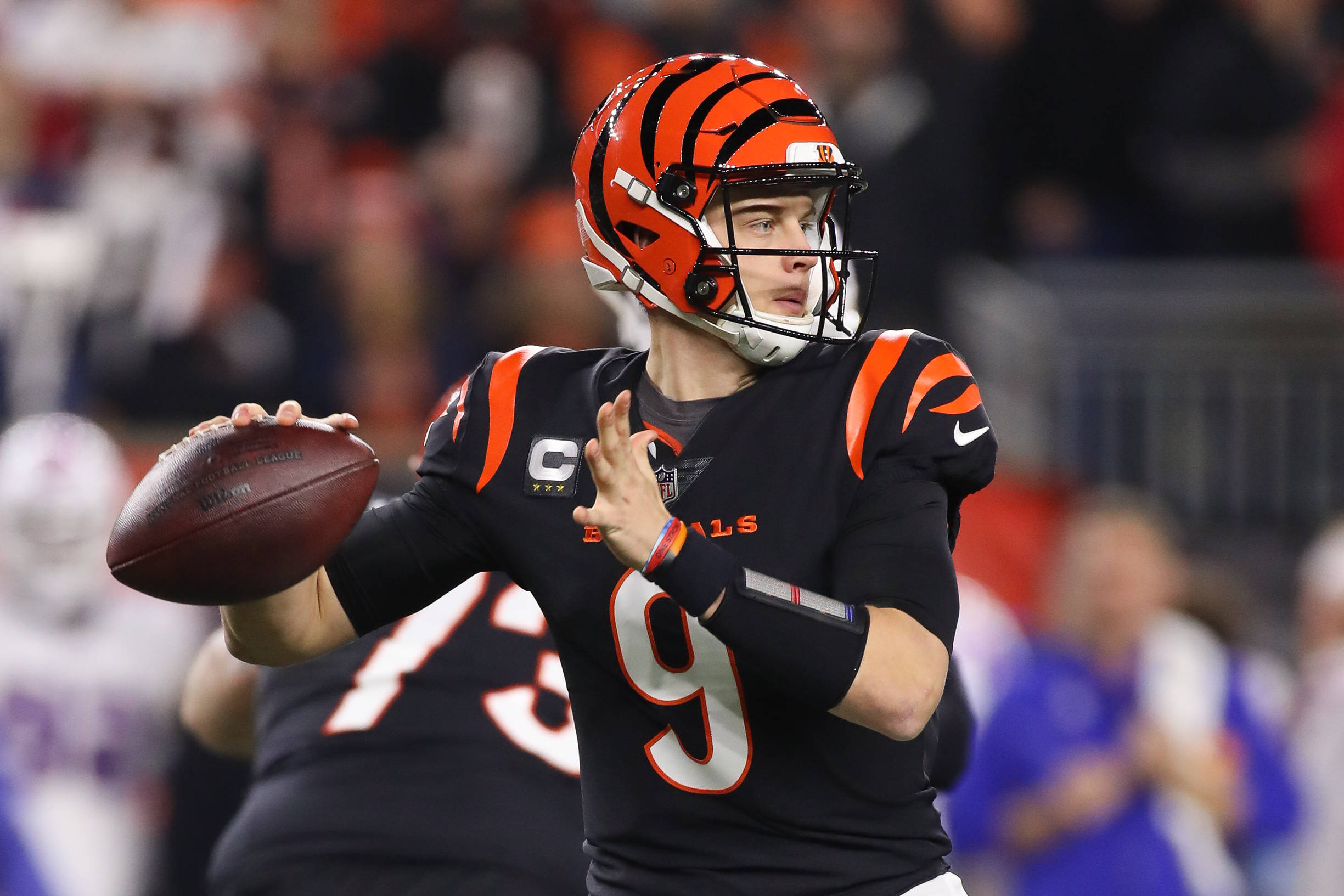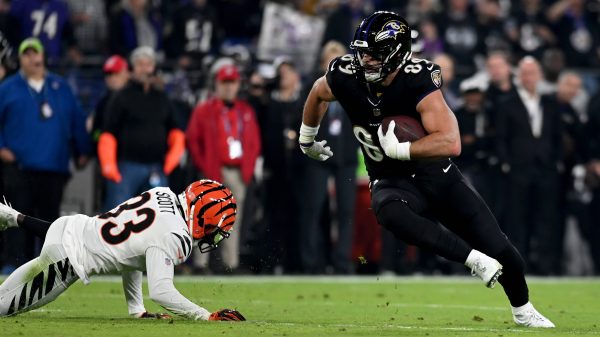The National Football League (NFL) is not just a sports league; it is also a massive business entity. With billions of dollars in revenue each year, the NFL operates as a complex organization with various revenue streams, partnerships, and financial considerations. Understanding the business side of the league is crucial for fans, players, and anyone interested in the NFL’s success.
The NFL is made up of 32 teams, each operating as its own business entity. These teams generate revenue through ticket sales, broadcasting rights, merchandise sales, sponsorship deals, and more. The league itself also generates revenue through licensing agreements and broadcasting deals. The NFL’s business operations are overseen by the league office, which handles matters such as scheduling, rule enforcement, and player discipline.
Key Takeaways
- The NFL generates revenue through various streams, including broadcasting rights, merchandise sales, and sponsorships.
- NFL team valuations are determined by factors such as market size, stadium quality, and team performance.
- Broadcasting rights are a significant contributor to the NFL’s bottom line, with networks paying billions of dollars for the rights to air games.
- NFL players and coaches can earn significant salaries, with top players earning tens of millions of dollars per year.
- Sponsorship and advertising play a crucial role in the NFL’s revenue, with companies paying millions of dollars to associate their brands with the league.
Revenue Streams of the NFL: How the League Makes Money
The NFL generates revenue from various sources, each playing a crucial role in the league’s overall financial success. The primary revenue streams for the NFL include broadcasting rights, ticket sales, sponsorship deals, merchandise sales, and licensing agreements.
Broadcasting rights are one of the most significant revenue streams for the NFL. The league earns billions of dollars from television networks that pay for the rights to broadcast games. These broadcasting deals are negotiated and structured to ensure maximum exposure and financial gain for both the league and the networks.
Ticket sales also contribute significantly to the NFL’s revenue. Fans purchase tickets to attend games in stadiums across the country, generating substantial income for both the teams and the league. Additionally, sponsorship deals with companies like Nike, PepsiCo, and Verizon provide a significant source of revenue for the NFL. These partnerships involve advertising during games, branding on jerseys and merchandise, and other promotional activities.
NFL Team Valuations: Understanding the Worth of Franchises
The value of an NFL team is determined by several factors. Forbes annually releases a list of the most valuable NFL franchises, taking into account factors such as revenue, operating income, and market size. The value of a team is influenced by its on-field success, market size, stadium quality, and brand recognition.
On-field success plays a significant role in determining a team’s value. Teams that consistently perform well and make it to the playoffs or Super Bowl tend to have higher valuations. Success on the field leads to increased fan support, ticket sales, and merchandise purchases.
Market size is another crucial factor in determining a team’s value. Teams located in larger cities with a larger population base have a greater potential for revenue generation. Cities like New York, Los Angeles, and Dallas are home to teams with high valuations due to their large fan bases and media markets.
The quality of a team’s stadium also impacts its value. Modern stadiums with state-of-the-art amenities attract more fans and generate higher revenue through ticket sales, concessions, and other sources. Additionally, teams with strong brand recognition and loyal fan bases tend to have higher valuations.
The Impact of Broadcasting Rights on the NFL’s Bottom Line
| Metrics | Description |
|---|---|
| Revenue | The total amount of money earned by the NFL from broadcasting rights. |
| TV Ratings | The number of viewers who watched NFL games on television. |
| Advertising Revenue | The amount of money earned by the NFL from advertising during broadcasts. |
| Media Contracts | The length and value of contracts signed by the NFL with media companies for broadcasting rights. |
| Market Share | The percentage of viewers who watched NFL games compared to other programming on television. |
Broadcasting rights are a significant source of revenue for the NFL. The league negotiates broadcasting deals with networks such as CBS, NBC, ESPN, and Fox, earning billions of dollars in return. These deals allow networks to broadcast games on television and other platforms, reaching millions of viewers.
The negotiation and structure of broadcasting deals are crucial for the financial success of the NFL. The league aims to maximize revenue while ensuring widespread exposure for its games. Networks bid for the rights to broadcast games, with the highest bidder securing the rights for a specific period.
The structure of broadcasting deals varies but typically includes a combination of national and regional broadcasts. National broadcasts reach a broader audience and generate higher revenue due to increased advertising rates. Regional broadcasts allow teams to reach their local fan bases and generate revenue through advertising and sponsorship deals.
NFL Salaries: How Much Players and Coaches Really Make
Player and coach salaries in the NFL are significant expenses for teams. The league operates under a salary cap system, which limits the amount teams can spend on player salaries. The salary cap is determined by the league’s revenue, with a percentage allocated to player salaries.
Player salaries in the NFL vary widely depending on factors such as experience, position, and performance. Star players and quarterbacks tend to earn the highest salaries, often signing multi-million dollar contracts. Rookie contracts are also structured based on draft position, with higher draft picks earning more money.
Coaches’ salaries in the NFL also vary depending on factors such as experience and success. Head coaches of successful teams often earn higher salaries, while assistant coaches and coordinators earn less. The highest-paid coaches in the NFL can earn several million dollars per year.
The Role of Sponsorship and Advertising in the NFL
Sponsorship and advertising play a crucial role in the NFL’s revenue generation. The league partners with various companies to promote their products and services during games and other events. These partnerships involve branding on jerseys, signage in stadiums, and advertising during broadcasts.
Sponsorship deals provide a significant source of revenue for the NFL. Companies pay millions of dollars to become official sponsors of the league or individual teams. These deals allow companies to align their brand with the NFL’s popularity and reach a large audience of fans.
Advertising during games is another important revenue stream for the NFL. Companies pay high rates to have their commercials aired during games, taking advantage of the large viewership and captive audience. Super Bowl commercials are particularly sought after, with companies paying millions of dollars for a 30-second spot.
NFL Merchandise: The Power of Licensing and Merchandising Deals
The sale of merchandise is a significant revenue stream for the NFL. Fans purchase jerseys, hats, t-shirts, and other items to show support for their favorite teams. The league earns revenue through licensing agreements with companies that produce and sell NFL merchandise.
Licensing deals allow companies to use the NFL’s logos, team names, and player likenesses on their products. In return, the league receives a percentage of the revenue generated from the sale of licensed merchandise. These deals are crucial for the NFL’s financial success, as they allow the league to reach a wide audience of fans and generate additional revenue.
The Economics of Stadiums: Building and Maintaining NFL Venues
Building and maintaining stadiums is a significant expense for NFL teams. Modern stadiums with state-of-the-art amenities can cost billions of dollars to construct. Teams often rely on public funding, sponsorships, and other revenue sources to finance stadium projects.
Stadiums impact the league’s revenue in several ways. First, they provide a venue for games, allowing teams to generate revenue through ticket sales, concessions, and other sources. Second, stadiums can be used for other events such as concerts and conventions, generating additional income for teams.
Maintaining stadiums is also an ongoing expense for teams. Regular maintenance, upgrades, and repairs are necessary to ensure the safety and comfort of fans. Teams often enter into long-term contracts with companies to handle stadium maintenance and operations.
The NFL Draft and Rookie Contracts: The Business of Talent Acquisition
The NFL draft is an essential event in the league’s business operations. It allows teams to acquire talented players who can contribute to their success on the field. The draft is also a business opportunity for the league, generating significant media coverage and fan interest.
Rookie contracts are structured based on draft position, with higher draft picks earning more money. These contracts are typically multi-year deals that include signing bonuses and performance incentives. Rookie contracts are an important consideration for teams’ salary cap management.
Talent acquisition is crucial for the success of NFL teams. The ability to identify and acquire talented players can make a significant difference in a team’s performance on the field. Teams invest significant resources in scouting, player evaluations, and contract negotiations to ensure they acquire the best talent available.
The Future of the NFL: Emerging Trends and Business Opportunities
The NFL is constantly evolving, and there are several emerging trends and business opportunities that could shape its future. One such trend is the growth of digital media and streaming platforms. As more fans consume content online, the NFL has the opportunity to expand its reach and generate additional revenue through digital partnerships.
Another emerging trend is the international expansion of the NFL. The league has been actively exploring opportunities to play games in other countries, such as Mexico and the United Kingdom. Expanding into new markets can help grow the NFL’s fan base and generate additional revenue through ticket sales, broadcasting rights, and merchandise sales.
Additionally, the NFL has the opportunity to capitalize on emerging technologies such as virtual reality and augmented reality. These technologies can enhance the fan experience by providing immersive and interactive content. The league can partner with technology companies to develop innovative products and services for fans.
Understanding the business side of the NFL is crucial for fans, players, and anyone interested in the league’s success. The NFL operates as a complex business entity with various revenue streams, partnerships, and financial considerations. From broadcasting rights to player salaries to sponsorship deals, every aspect of the league’s operations impacts its financial success. By understanding these dynamics, fans can gain a deeper appreciation for the business side of their favorite sport, while players and teams can make informed decisions to maximize their success on and off the field.
Check out this related article on the NFL: “Former Broncos RB Hillman Dies at 31.” It discusses the tragic passing of former Denver Broncos running back Ronnie Hillman at the young age of 31. Hillman had a promising career in the NFL, but his life was cut short unexpectedly. This article sheds light on the challenges and risks that NFL players face both on and off the field. Read more
FAQs
What is the NFL?
The NFL (National Football League) is a professional American football league consisting of 32 teams, divided equally between the National Football Conference (NFC) and the American Football Conference (AFC).
How is the NFL structured?
The NFL is structured as a non-profit organization, with each team being owned by an individual or group of individuals. The league is governed by a commissioner, who is elected by the team owners.
How does the NFL make money?
The NFL makes money through a variety of sources, including television contracts, ticket sales, merchandise sales, and sponsorships. The league also generates revenue through licensing agreements and investments.
What is the salary cap in the NFL?
The salary cap in the NFL is the maximum amount of money that a team can spend on player salaries in a given year. The cap is determined by the league and is based on a percentage of the league’s total revenue.
How are NFL teams valued?
NFL teams are valued based on a variety of factors, including their revenue, profitability, market size, and brand value. Forbes publishes an annual list of the most valuable NFL teams, with the Dallas Cowboys consistently ranking at the top.
What is revenue sharing in the NFL?
Revenue sharing in the NFL is a system in which the league’s total revenue is divided among the teams. This helps to ensure that smaller-market teams are able to compete with larger-market teams, and that all teams have a fair chance to succeed.











































































































































































Recent Comments